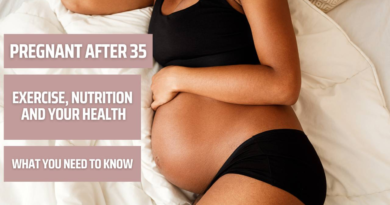What to know about the RSV vaccine in pregnancy
RSV is the leading cause of infant hospitalization in the US, reports the CDC, but we may soon have another tool to prevent severe illness in babies. The FDA recently approved Abrysvo, the first vaccine approved for pregnancy to prevent lower respiratory tract disease caused by RSV in babies from birth through 6 months.
Respiratory syncytial virus, or RSV, is a common virus that nearly every child will have contracted by age 2, but it can be especially severe for infants under 12 months, especially those with pre-existing conditions, as well as older adults. The virus is the most common cause of the lung infection bronchiolitis and pneumonia in children under 1 in the US. More than 58,000 to 80,000 children under 5 are hospitalized due to RSV each year, according to the CDC.
Approved for use at 32 weeks through 36 weeks of pregnancy, Pfizer’s Abrysvo has already been authorized for adults over age 60 and is given as a single injection into the muscle. The vaccine works by passing antibodies to developing infants from maternal circulation across the placenta during pregnancy, acting as a protective shield against the virus once they’re born. “Maternal immunization has been used for decades to help prevent infectious disease in infants such as influenza, tetanus, pertussis, and more recently COVID-19, and can be especially beneficial for diseases that are most severe in very early life,” a Pfizer spokesperson tells Motherly.
“RSV is a common cause of illness in children, and infants are among those at highest risk for severe disease, which can lead to hospitalization,” said Peter Marks, MD, PhD, director of the FDA’s Center for Biologics Evaluation and Research. “This approval provides an option for healthcare providers and pregnant individuals to protect infants from this potentially life-threatening disease.”
An antibody-like therapy, Beyfortus, was also recently approved by the FDA and CDC for use in babies born during or entering their first RSV season, and in children up to 24 months who remain vulnerable to severe RSV disease through their second RSV season.
Safety and efficacy of the maternal RSV vaccine
In a study of approximately 7,400 pregnant women, who were randomized to receive either a 1-shot dose of the Pfizer RSV vaccine or a placebo during the late second or early third trimester, researchers saw a vaccine efficacy rate of 81.8% against severe disease from RSV in infants from birth through the first 90 days of life. Results also showed 69.4% efficacy against severe disease through the infants’ first six months of life.
blogherads.adq.push(function(){
blogherads.defineSlot(‘flexrec’, ‘ad_div_in_body_2’).setTargeting(‘targetingKey’,
‘targetingValue’).display();
});
The August 21 approval comes after an FDA advisory committee voted to support the approval of the maternal RSV vaccine in May, attesting that the available data supported the efficacy and safety of its use. The Committee voted 14 to 0 on effectiveness and 10 to 4 on safety, as some experts were concerned about the adequacy of data to support the vaccine’s safety profile.
The vaccine was well-tolerated, but there was some evidence that study participants who were vaccinated may have been more likely to have a preterm birth. In the study, Abrysvo recipients experienced preterm births at a slightly higher percentage (5.7%) compared with placebo recipients (4.7%), though it’s unclear whether the vaccine itself caused the difference. FDA officials noted that the difference was not considered statistically significant. To avoid potential risk of preterm birth, it’s recommended to get the vaccine later in pregnancy, between weeks 32 and 36 of gestation.
The most commonly reported side effects by pregnant individuals who received Abrysvo were pain at the injection site, headache, muscle pain and nausea. In clinical trials where Abrysvo was compared to placebo, infants born to pregnant individuals experienced low birth weight (5.1% Abrysvo versus 4.4% placebo) and jaundice (7.2% Abrysvo versus 6.7% placebo).
Even more rare, preeclampsia was reported in 1.8% of pregnant people who received Abrysvo compared to 1.4% of pregnant people who received placebo. It’s worth noting that the FDA’s final approval of Abrysvo shows that the benefits of receiving the vaccine outweigh any potential risks.
“Newborns and young infants—whose immune systems are still developing and are not yet strong enough to defend against infections—may now be protected from RSV from the moment of birth through maternal immunization,” said Eric A.F. Simões, M.D., Clinical Professor, Pediatrics-Infectious Diseases, University of Colorado School of Medicine and Children’s Hospital Colorado, Aurora, in a press release. “The approval of Pfizer’s ABRYSVO is a major triumph as it helps ensure no delay in potential RSV protection during an infant’s most vulnerable first six months of life and offers healthcare providers a new opportunity to help prevent severe RSV.”
We don’t yet know when the RSV vaccine in pregnancy will be available, though Pfizer has been manufacturing the vaccine ahead of the 2023/2024 RSV season, the Pfizer spokesperson tells Motherly, which usually starts in September. The CDC still has to review and sign off on the vaccine, though the committee that advises the agency on vaccine recommendations is expected to meet soon to determine recommended use.
blogherads.adq.push(function(){
blogherads.defineSlot(‘flexrec’, ‘ad_div_in_body_1’).setTargeting(‘targetingKey’,
‘targetingValue’).display();
});




